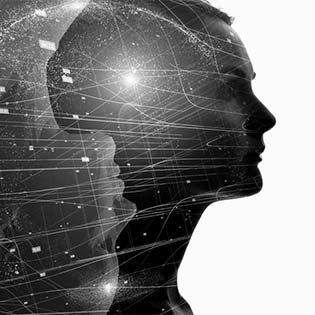2) Science, Belief, and Society in the COVID-19 pandemic
- Location
- Online - a link will be sent to you before the event
- Dates
- Thursday 8 July 2021 (09:00-10:15)

The COVID-19 pandemic has brought to the forefront many issues involving science, belief, and society. Widespread narratives have revolved around the role of religion and belief in affecting people’s attitudes towards and adoption of health behaviours on local and global levels.
We will be bringing together a group of international scholars to discuss issues such as vaccine hesitancy, (con)spirituality, communication by religious leaders, and the relationship between science and religion in the health sector.
STEMM and Belief in Diverse Contexts Conference 2021
This public lecture is part of the STEMM and Belief in Diverse Contexts Conference July 7-9 2021.
In the last decade, there has been significant growth in social scientific and humanities research focusing on science, religion and belief in society. Greater attention is being paid to the varied ways in which perceptions of different aspects of STEMM subjects (science, technology, engineering, medicine, and mathematics) have been, or are, influenced by religious and non-religious belief, identity, community and conflict in different geographical, cultural and historical contexts. This conference will bring together international researchers with backgrounds in sociology, science and technology studies, psychology, political science, history, social anthropology, and related humanities or social science disciplines, to discuss perspectives on the overarching topic of science and belief in society.
Future Directions
This event will mark the launch of the Diversity in STEMM and Innovation Research Group within the University of Birmingham’s Institute for STEMM in Culture and Society. The Research Group will bring academics from a range of science and humanities disciplines together with practitioners working in widening participation and career development to address inequalities in the sciences, both in higher education and industry, in the UK and globally.
The cluster emerges out of ground-breaking research carried out at the University of Birmingham examining how cultural and historical narratives about science and society facilitate stereotyping and social exclusion. It extends this work, drawing on expertise from psychology, sociology, education and business and management, as well as STEMM disciplines. Over the coming months, the Research Group will be working within partners nationally and internationally to advance research and practice in this area, with the ultimate aim of making STEMM careers more accessible.
Our Panellists
Tom Aechtner, Senior Lecturer in Religion and Science in the School Historical and Philosophical Inquiry at the University of Queensland
As a Westpac Research Fellow alumnus, and a recipient of UQ’s Foundation Research Excellence Award, Tom’s work examines contemporary religion-and-science discourse, science-scepticism, mass media, persuasion, and public perceptions of science. Tom has also created AVAXX101, the first massive open online course dedicated to responding to antivaccination claims and vaccine hesitancy. He is a technical advisor to Queensland Health’s Strategic Communications Branch, a member of the Australian Vaccine Response Alliance, and he designed UQ’s VaccinationChoice website.
Bankole Falade, Research Fellow with the South African Research Chair in Science Communication, Centre for Research on Evaluation, Science and Technology (CREST), Stellenbosch University
Bankole is also Visiting Fellow, Department of Psychological and Behavioural Sciences, the London School of Economics and Political Science, UK. A Social Psychologist, his work at CREST focuses on the interactions between science and religion; perceptions of health and disease in Africa; public trust, interest, engagement with and attitudes to science; computerised media mapping for science news and social research methods.
Anna Halofoff, Associate Professor in Sociology of Religion in the School of Humanities and Social Sciences at Deakin University, Australia
She is a Chief Investigator on two Australian Research Council Discovery Projects on the Worldviews of Generation Z Australians and on Religious Diversity in Australia. Her other research interests include interreligious relations, religion and education, preventing violent extremism, contemporary spirituality, and Buddhism in Australia.
Mar Griera - @GrieraMar
Associate Professor in the Sociology Department at the Universitat Autònoma de Barcelona (UAB)
Her main research expertise lies at the intersection of religion, spirituality, identity and heritage regimes in contemporary Europe. Mar’s primary academic background is in sociology but she has intensively engaged with other disciplinary fields during her career, especially religious studies, political science and anthropology. She has coordinated several competitive projects in these fields and has extensively published their results in leading academic journals and books. Within the SRES2 project, Mar leads the research in Spain and is especially interested in the following sub-fields: a) the religion and science debates and positions among radical right movements and parties in Europe, and b) the beliefs, attitudes and behaviours of those involved in the holistic spiritual milieu on science and religion debates.